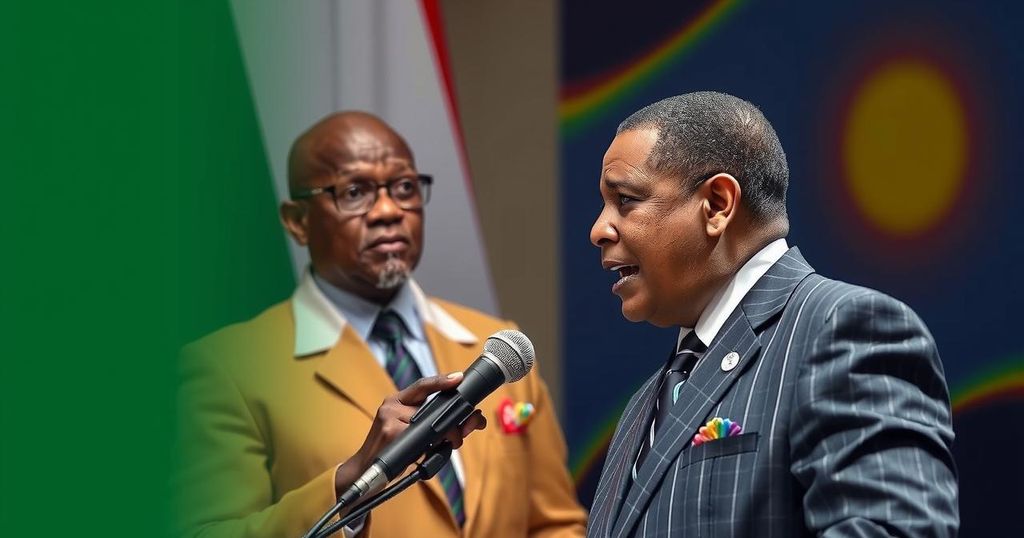Botswana Election: A New Era as BDP Loses Power After 58 Years

Botswana voters have unseated the long-dominant Botswana Democratic Party, which held power for 58 years, in a significant election outcome. The Umbrella for Democratic Change, led by Duma Boko, has emerged victorious, capturing 20 parliamentary seats, and is expected to secure a majority. This shift arises amidst growing public discontent over economic challenges under the BDP’s leadership, paving the way for a new political chapter in the nation.
In a significant political shift, voters in Botswana have decisively turned away from the Botswana Democratic Party (BDP), which has governed the nation since its independence in 1966. Preliminary election results indicate that the BDP has secured only one parliamentary seat, a stark contrast to the twenty seats won by the Umbrella for Democratic Change (UDC) under the leadership of human rights attorney Duma Boko. The UDC is projected to surpass the required thirty-one seats necessary for a parliamentary majority, positioning Duma Boko to potentially become the new president once the parliament convenes. This marks Boko’s third bid for the presidency, as he calls on his supporters to embody “vigilance and discipline.” The BDP’s waning appeal can be attributed to stagnant economic growth and rising unemployment, which have adversely affected its popularity despite a history of stability. Mokgweetsi Masisi, the current president and leader of the BDP who has held office since 2018, will be succeeded by Boko following a campaign that ultimately failed to convince voters of the BDP’s capacity for meaningful change.
Botswana has historically been noted for its stable political climate and effective governance, largely attributed to the long-standing rule of the Botswana Democratic Party. Since gaining independence in 1966, the BDP has dominated Botswana’s political landscape. However, recent economic challenges, including sluggish growth and high unemployment rates, have led to growing discontent among the populace. The 2023 elections were viewed as a referendum on the BDP’s performance, resulting in a profound electoral shift as the UDC emerged victorious, reflecting a desire for change among the electorate. Duma Boko’s rise signifies a new political era for Botswana, one that may bring different priorities and approaches to governance in the diamond-rich nation.
The recent elections in Botswana have led to a historic political transformation, marked by the defeat of the Botswana Democratic Party after nearly six decades in power. The Umbrella for Democratic Change, led by Duma Boko, is expected to form the next government, indicating a significant shift in the political landscape of Botswana. As the new leadership prepares to address the pressing issues of economic growth and unemployment, the election results suggest a strong mandate for change from the electorate. This development not only affects Botswana but also serves as an important case study on governance and public sentiment in the region.
Original Source: www.bbc.com







